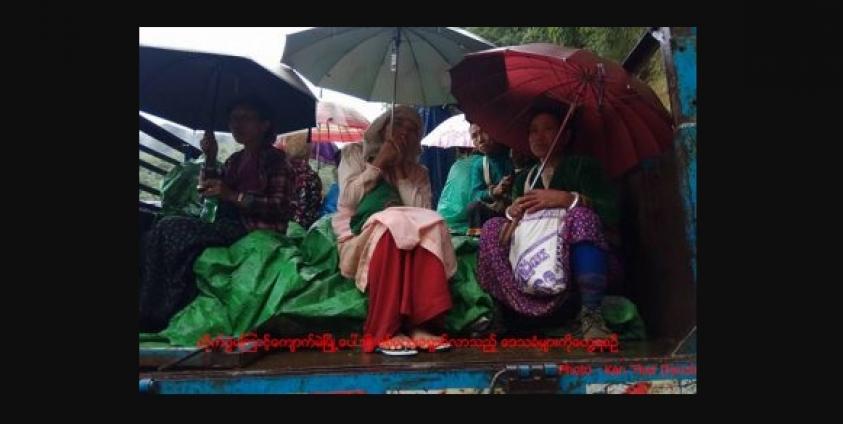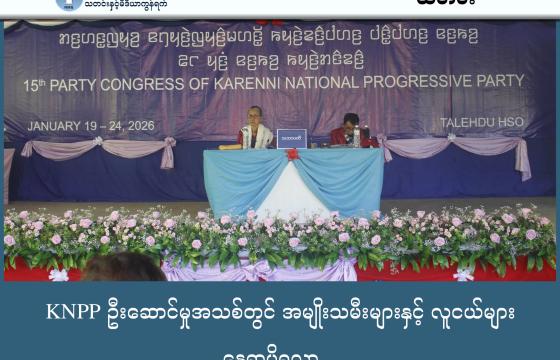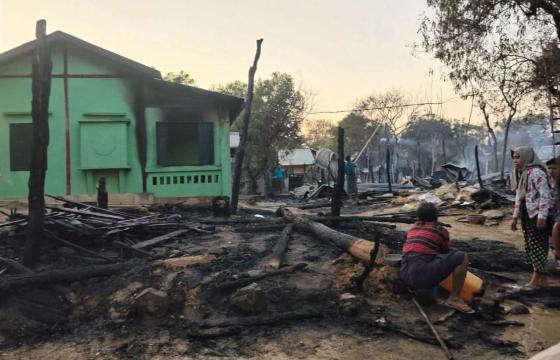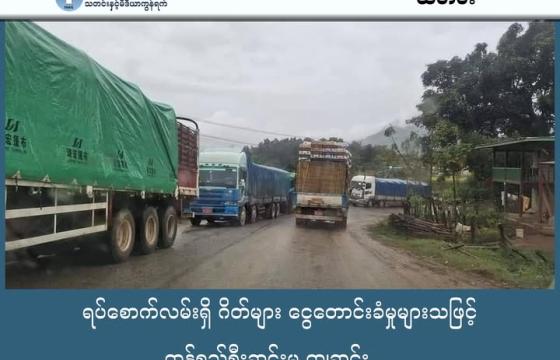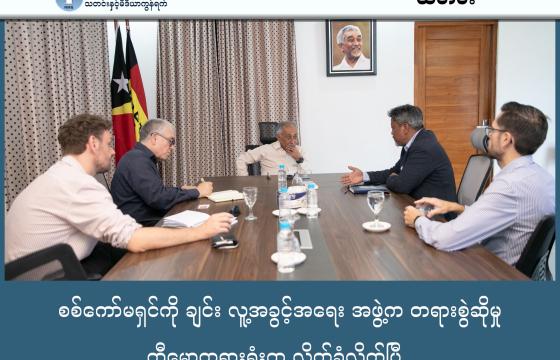With armed conflict, there has been an increase in abuses, interethnic conflict, and internal displacement of civilians, the groups say.
Four women’s organizations based in Shan State said in a joint statement on Thursday that security, human rights and rule of law have suffered in recent years.
The Lahu Women’s Organization (LWO), the Pa-O Women’s Union (PWU), the Shan Women’s Action Network (SWAN) and the Ta’ang Women’s Organization (TWO) pointed out in the statement that “despite the signing of the Nationwide Ceasefire Agreement (NCA)” between the government and some ethnic armed groups, conflict has increased in Shan State. Subsequently, there has been an increase in human rights abuses, interethnic conflict and internal displacement.
“After the signing of the NCA in 2015, there have been more battles between the RCSS [Restoration Council of Shan State] and the TNLA [Ta’ang National Liberation Army],” Joint General Secretary 2 of the TWO, Lway Ku Ku told NMG. “There are more military deployments in ethnic areas. More battles have occurred in ethnic areas. There are battles between EAOs [ethnic armed organizations] and government forces, as well as fighting between EAOs. People have been suffering a lot from these armed conflicts.”
Clashes have broke out between the RCSS and members of the Northern Alliance of ethnic armed groups since August, after tension between the groups rose in July.
“About 2,000 to 3,000 people became IDPs [internally displaced people] within the two to three months after July. Those IDPs are fleeing off and on from battles. The number of IDPs gradually increased within these months,” Lway Ku Ku said.
The women’s groups say that human rights violations have occurred in southern Shan State as well because of the widespread presence of government forces, militias, and other non-state armed groups.
Nang Zin Nwe, PWU executive director, said that the areas controlled by various armed groups in southern Shan State “overlap,” fueling tension. Crimes, including rape, beatings, and torture, have been committed against local people, she explained.
“Before the signing of NCA, there was a common goal among EAOs. They talked about ethnic equality. Some EAOs signed the NCA but some did not. After the signing of NCA, there are different interests and desires among EAOs,” Nang Zin Nwe said.
In their statement, the women’s organizations emphasized the lack of rule of law—that the respective authorities have not been able to resolve or effectively address human rights violations.
“Villagers especially are abused by soldiers. They come into villages and ask for information about rebel movements. They often search houses without permission. They destroy things. They beat villagers. They also block travel. Human rights abuses and extra judicial killing often occur in ethnic areas,” Lway Ku Ku said, adding that the presence of landmines also continues to be a serious concern among communities.
The signatory women’s organizations urged all parties engaged in armed conflict to cease fighting and “ensure there is security, peace and development for the people.”

